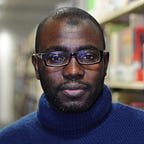Now That You Have a PhD !
In this final episode, we aim to offer a straightforward roadmap for answering the initial question: how can PhD holders expand their impact beyond the traditional confines of teaching and research, especially when their roles are rooted in academia? Furthermore, we will explore innovative steps they can take to extend their influence into broader societal realms.
As noted in the first part of this series, anyone who undergoes PhD training is expected to develop critical thinking, research, information management, and problem-solving skills. Additionally, PhD holders often possess expertise in data analysis, grant writing, project management, adaptability, self-management, and both written and oral communication. They are also equipped with collaboration and networking abilities.
By leveraging these skills, PhD holders can make significant contributions in their communities, states, nations, and even on the international stage. However, to keep our focus concise, we will explore three key areas where their impact can be particularly powerful: mentorship and education, public policy and advocacy, and community-driven research and development. It’s important to note that these efforts should emphasize networking and collaboration. No one should feel the burden of taking on these challenges alone. The collaborative and networking skills you’ve developed will allow you to build partnerships, ensuring that your new projects complement — rather than interfere with — your official responsibilities at your workplace.
Mentorship and Education
Your training has equipped you with the tools to educate, guide, counsel, raise awareness, and mentor others. With your knowledge and experience, you can identify and assist school dropouts, those needing to retake exams (SSCE/NECO), or students preparing for JAMB. You don’t need to do this alone; community members can help. Additionally, you can offer workshops on crafting award-winning CVs, acing interviews, and making informed decisions about course selection and institutions. PhD holders are also well-positioned to share information about scholarships, grants, freelancing opportunities, or how to secure a job. These initiatives can be conducted at little to no cost — whether through remote webinars or community sessions in places of worship.
Furthermore, you can mentor young people in their career paths or research pursuits, guiding them toward their goals. Other valuable contributions include mentoring young entrepreneurs on innovation or providing policy mentorship to future leaders, helping them navigate public policy using evidence-based decision-making.
Public Policy and Advocacy
By utilizing their networks and collaborating with local leaders and civil society organizations, PhD holders can influence, and champion policies aimed at improving education, reducing poverty, and fostering economic development. These skills can be used to offer evidence-based insights on key issues such as education, agriculture, and healthcare, directly addressing community needs.
For example, recent reports in national newspapers have highlighted the increasing prevalence of kidney failure in some northern Nigerian states. According to these reports, “for every ten deaths, three are due to kidney failure.” PhD holders are well-positioned to pay attention to such community-specific challenges and identify ways to make a difference.
In terms of advocacy, one noteworthy example is the Maradun Unity Arena Scholarship Scheme, chaired by my friend, Nura Makwashi, PhD, COREN, MNSE, MNIM, MSPE, and my Facebook acquaintance, Jalaludeen Maradun. These two PhDs collaborated to create a platform, mobilizing influential community members to offer scholarships. Dr. Jalaludeen, for instance, awarded ₦200,000 in scholarships to four students (₦50,000 each), focusing on postgraduate research students in languages or literature. What’s inspiring is that contributions to the scheme can be as low as the donor can afford, and they can specify preferences such as level of education (secondary, polytechnic, or university), course (e.g., mathematics, computer science), gender, or interest group (e.g., female, underprivileged, orphans). The approach is flexible and highlights the power of networking and collaboration without requiring a PhD holder to donate large sums. You can learn more about their fascinating work here!
Community-Driven Research and Development
PhD holders are uniquely positioned to spearhead community-driven research and development initiatives that address specific local challenges. This approach combines the rigors of academic research with real-world problem-solving, creating solutions that are both innovative and practical.
For instance, PhD holders can lead or collaborate on projects that focus on sustainable agriculture, renewable energy, or public health, tailoring these initiatives to the needs of their communities. Imagine leading a project that develops low-cost, solar-powered irrigation systems for local farmers, or creating a community health monitoring system that tracks and responds to disease outbreaks in real-time. These projects not only provide tangible benefits but also involve community members in the research process, empowering them with knowledge and skills.
Moreover, PhD holders can partner with local businesses, NGOs, and government agencies to pilot new technologies or social initiatives. By acting as both researchers and innovators, they can help translate academic knowledge into practical applications that drive economic development, improve quality of life, and create new opportunities within their communities.
Through these community-focused R&D efforts, PhD holders can play a pivotal role in transforming their local environments, turning challenges into opportunities for growth and development.
In Conclusion
I hope the examples shared here inspire you to think and act. From the stories of Dr. Mahmoud Bukar Maina PhD FRSA to Michael Taiwo, Ph.D. and Ibraheem Dooba, Ph.D., we learn that making an impact doesn’t require holding a government position or having vast amounts of money. All it takes is good intentions, focus, identifying a gap, and taking the initiative. While this article emphasizes PhD holders, the truth is that anyone can make a difference. The emphasis on PhDs stems from the potential I see in those around me and the desire to inspire them to take meaningful action.
